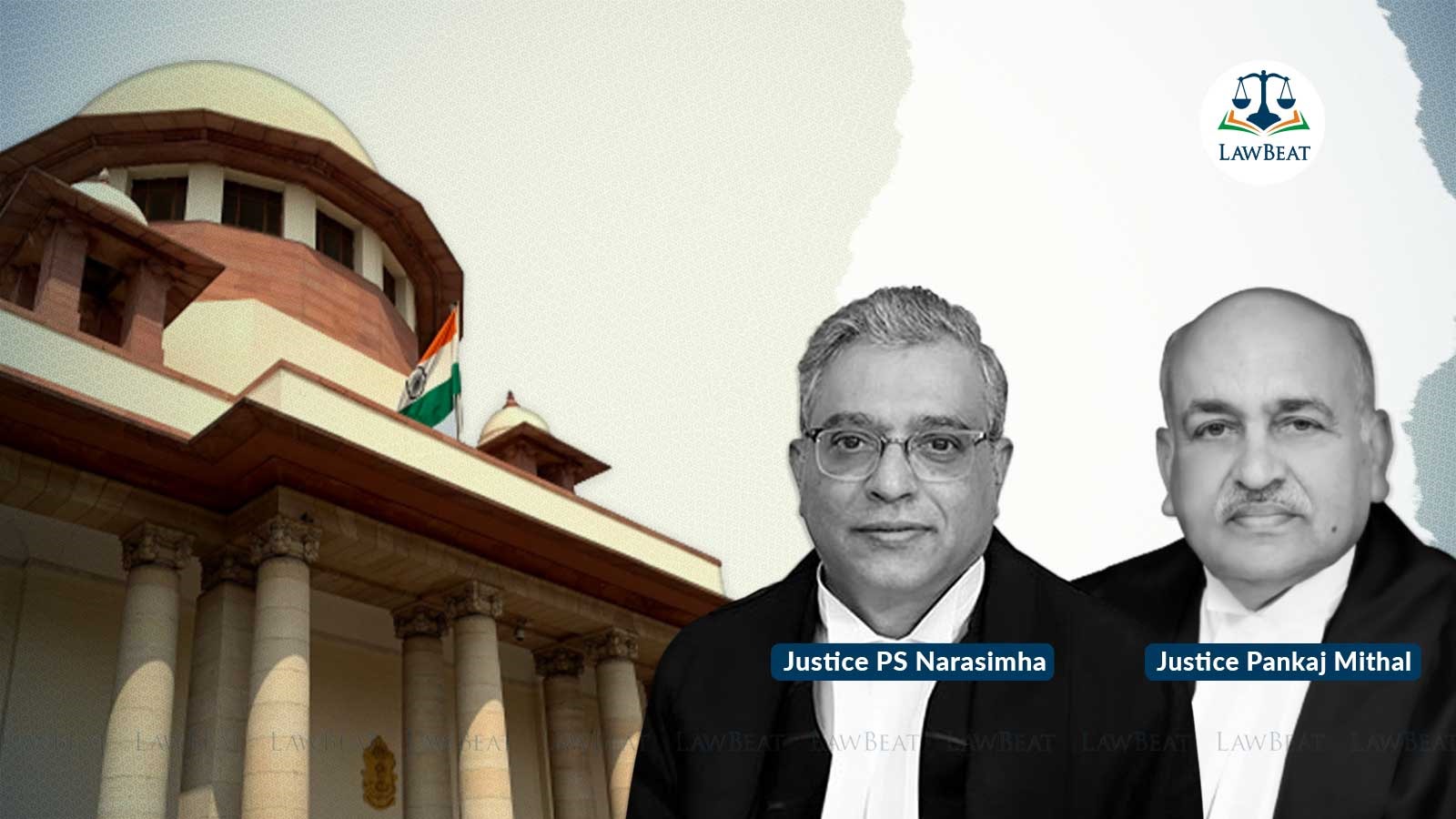'Always Necessary to Clarify If an Order Is for Decision-Making or Precedent-Making': SC

The bench said every judgment or order made by the Supreme Court in disposing of appeals is not intended to be a binding precedent under Article 141 of the Constitution
The Supreme Court has said it is always imperative to clarify whether a particular decision is to resolve the dispute between the parties and provide finality or whether the judgment is intended to and in fact declares the law under Article 141 of the Constitution.
"It is also important to note that, as an institution, our Supreme Court performs the twin functions of decision-making and precedent-making. A substantial portion of our jurisdiction under Article 136 is reflective of regular appellate disposition of decision-making. Every judgment or order made by this Court in disposing of these appeals is not intended to be a binding precedent under Article 141," a bench of Justices P S Narasimha and Pankaj Mithal said.
The bench said though the arrival of a dispute for the apex court’s consideration, either for decision-making or precedent-making is at the same tarmac, every judgment or order which departs from the court lands at the doorstep of the high courts and the subordinate courts as a binding precedent.
"We are aware of the difficulties that High Courts and the subordinate courts face in determining whether the judgment is in the process of decision-making or precedent-making, particularly when we have also declared that even an obiter of this court must be treated as a binding precedent for the High Courts and the courts below," the bench said.
In the process of decision-making, the bench pointed out, the court takes care to indicate the instances where its decision is not to be treated as a precedent.
"It is therefore necessary to be cautious in our dispensation and state whether a particular decision is to resolve the dispute between the parties and provide finality or whether the judgment is intended to and in fact declares the law under Article 141," the bench said.
The court made these observations while placing a matter before the Chief Justice of India for reference to a three-judge bench.
The matter before the apex court related to a plea by an MSME (Micro, Small and Medium Enterprises) for referring a dispute that it had with the buyer regarding payment of its dues to the Facilitation Council for arbitration under Section 18 of the MSME Development Act, 2006, which provided that “any party to a dispute may, with regard to any amount due under section 17, make a reference to the Micro and Small Enterprises Facilitation Council”.
The appellant, NBCC (India) Ltd opposed the prayer by contending that ‘any party’ could only be a ‘supplier’ and that supplier should have been registered under Section 8 of the Act even before execution of the contract, if not, the reference was impermissible.
Court noted that the high court did not answer this question. Instead, it permitted the parties to raise such objections before the Arbitral Tribunal. The buyer filed an appeal before the apex court, raising the same question as a jurisdictional issue.
"We have examined the text, context, and purpose of the Act to arrive at the decision that Section 18 is not restrictive and is a remedy for the resolution of disputes, and as such, it is kept open-ended to enable ‘any party’ to refer the dispute to seek redressal," the bench said.
The apex court rejected the submission that ‘any party to a dispute’ was confined to a ‘supplier’ who had filed a memorandum under Section 8 of the Act.
It also explained that the issues that had arisen in the decisions of the apex court in Silpi Industries Vs Kerala State Road Transport Corporation (2021) and Gujarat State Civil Supplies Corporation Limited Vs Mahakali Foods Private Limited (2023) were very different from the issue that had arisen for the consideration in the matter at hand.
"However, for clarity and legal certainty, we have directed the appeal be placed before the Chief Justice of India for referring the matter to a bench of three Judges for an authoritative pronouncement," the bench said.
The bench stated that in approving the 1989 decision in Municipal Corporation of Delhi vs. Gurnam Kaur, which held that 'precedents sub-silentio and without argument are of no moment,' the court had affirmed that a decision not express, lacking reasoning, and not based on issue consideration cannot be considered a binding law under Article 141.
The bench also pointed out the same approach was adopted in Arnit Das Vs State of Bihar (2000) where it was held, “A decision not expressed, not accompanied by reasons and not proceeding on a conscious consideration of an issue cannot be deemed to be a law declared to have a binding effect as is contemplated by Article 141. That which has escaped in the judgment is not the ratio decidendi. This is the rule of subsilentio, in the technical sense when a particular point of law was not consciously determined”.
The bench opined that it was still possible for the court to follow the precedents in reaching the conclusion that those previous judgments cannot be considered binding precedents on the issue under consideration, given the compelling need to ensure clarity and certainty about the applicable precedents on the subject.
However, the bench said, "We deem it appropriate to refer this appeal to a three-judge bench."
Case Title: NBCC (India) Ltd Vs The State of West Bengal & Ors
